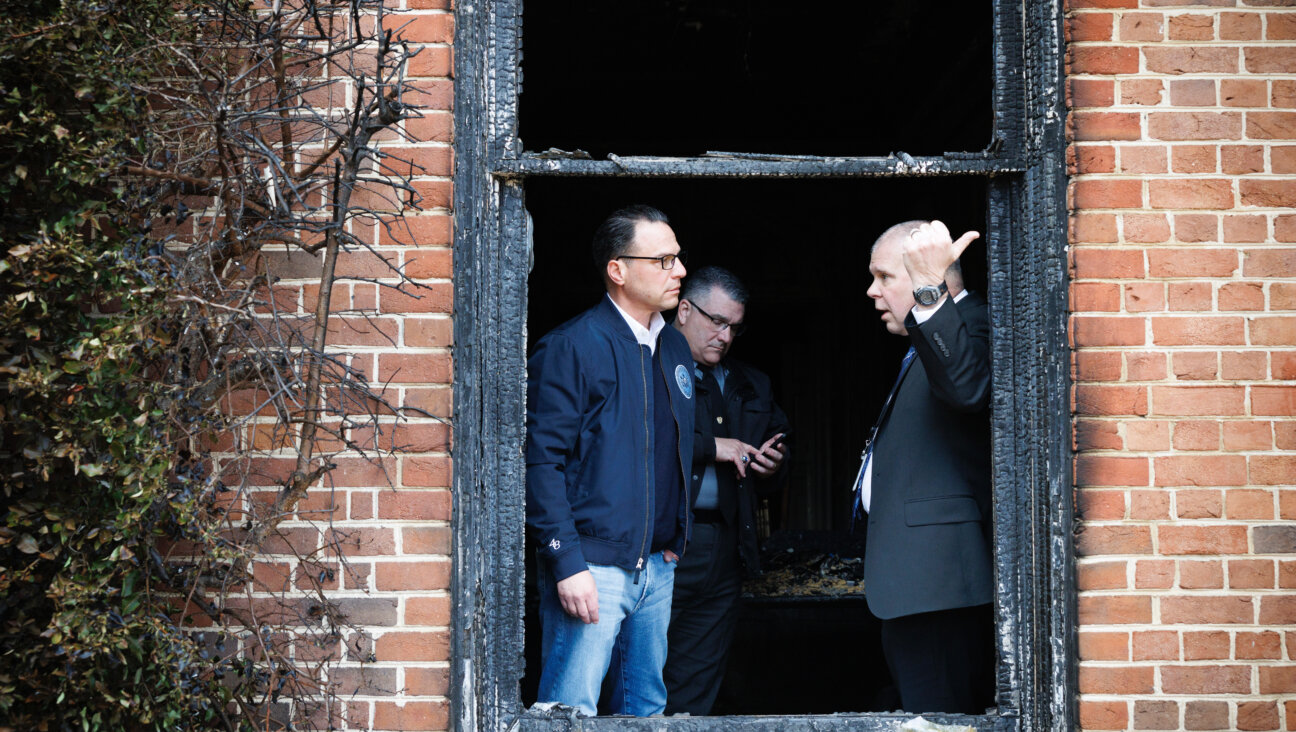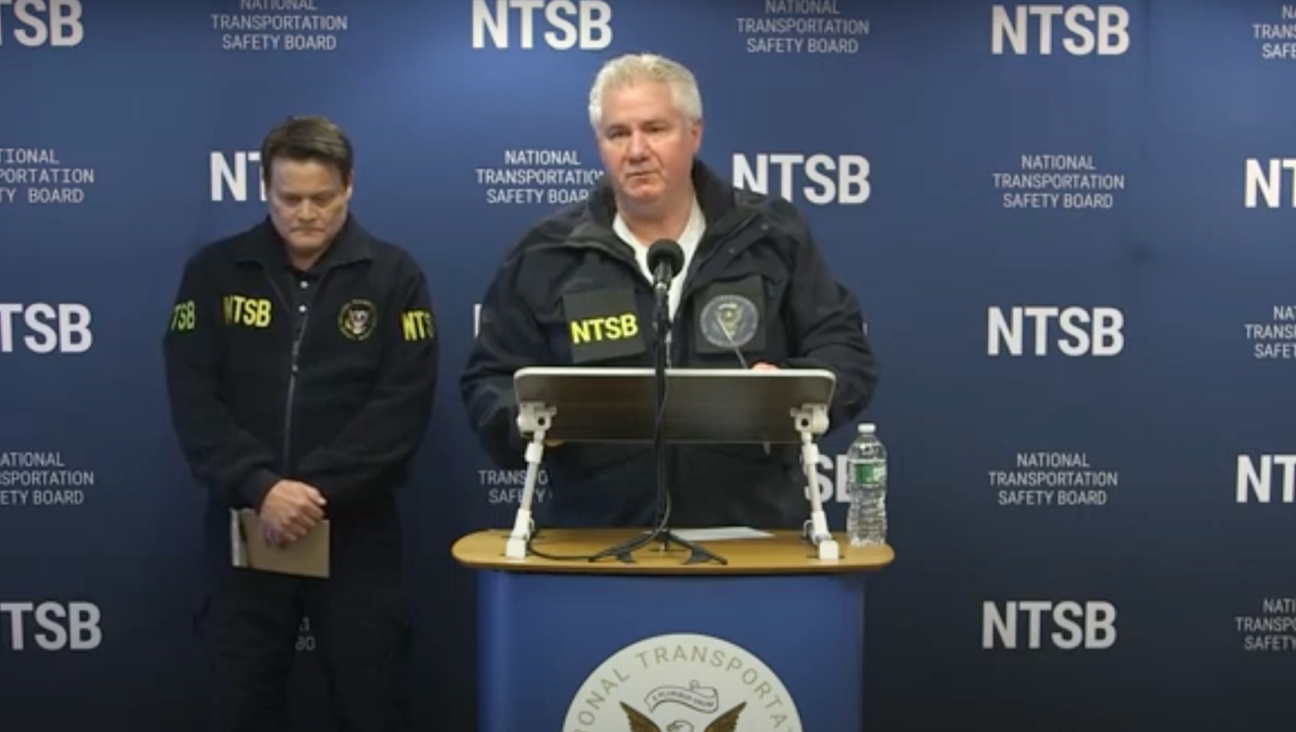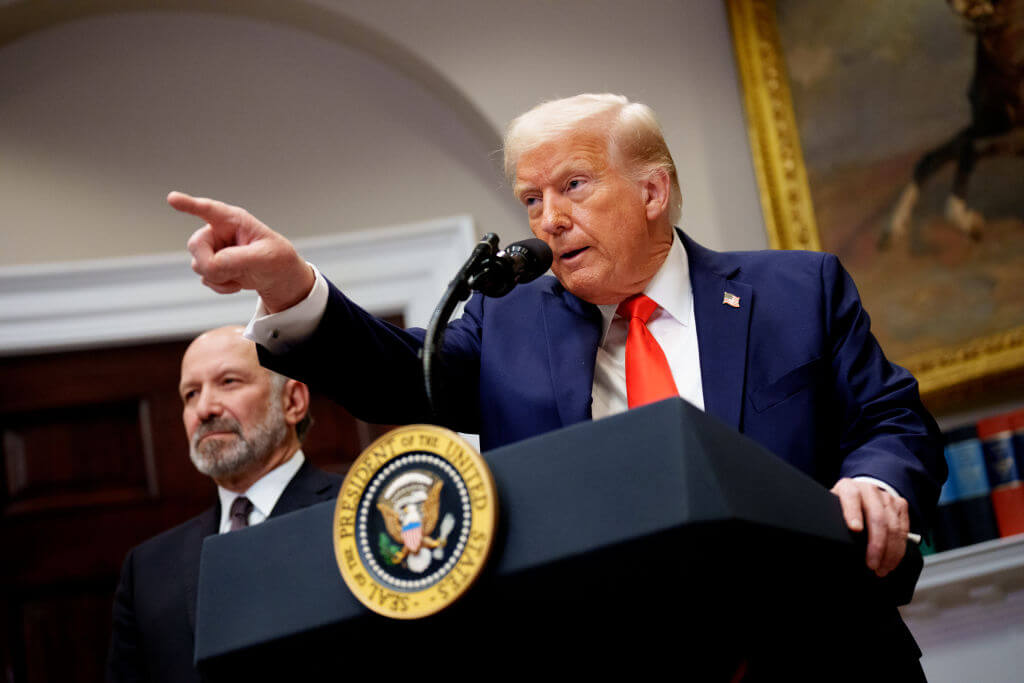Pro-Israel Lobby Throws Support Behind Fatah-Led Palestinian Cabinet
Washington – Pro-Israel lobbyists and legislators have become unexpected cheerleaders for the Palestinian leadership after the new Fatah-led Cabinet took action against Hamas.
In a memo sent out to congressional offices this week, the American Israel Public Affairs Committee commended the new Palestinian government for “taking important steps needed for peace” and for breaking ties with Hamas, which now rules Gaza.
“If followed with consistent action, these promising steps can serve as the foundation for negotiations with Israel,” the Aipac memo reads.
Separately, Rep. Steve Israel, a New York Democrat, traveled to Ramallah to visit with the new Palestinian prime minister, Salam Fayyad. Congress will soon vote on funding for the Palestinians, and Israel said he is now more disposed to supporting the aid.
“I want to see performance and benchmarks before making a decision,” Israel said, “but while in the past I did not want to see money go to a government headed by Hamas, I am now more willing to hear of aid for a government which excludes the Hamas.”
The pro-Israel lobby has long been a leading voice in demanding strict scrutiny of the Palestinian Authority and in focusing lawmakers’ attention on problems of accountability within the Palestinian leadership.
The new attitude in Washington toward the Fatah-led Palestinian government comes against a backdrop of recent successes by Hamas in Gaza. Since Hamas took over Gaza, rocket firing toward Israel has decreased, internal fighting has stopped and a kidnapped BBC reporter was released with the help of Hamas.
For Fatah, in contrast, changes on the ground in the West Bank are, so far, few and less visible.
The Aipac memo lists several recent steps taken by Abbas and Fayyad, including the dissolution of the national unity government with Hamas, the orders for presidential guards to take action against Hamas militants in the West Bank and the outlawing of militias in the Palestinian territories. The Palestinian leaders also won praise for their rhetoric on the peace process and their renunciation of violence as a means of achieving political goals.
At the same time, Aipac stressed the need for the new Palestinian government to keep up the policy of rejecting Hamas and called on Arab countries to help Abbas by isolating Hamas both diplomatically and financially.
Aipac’s new policy memo comes as the administration begins consulting with Congress on changes to the proposed $86 million aid package for Abbas’s security forces, which was proposed by American military coordinator Keith Dayton. While Congress scaled down the original package, the State Department is now trying again to increase the aid, following the formation of the new Palestinian government in the West Bank.
Aipac did not oppose the increase in aid.
The funding issue was also central to the meeting between New York representative Israel and the Palestinian prime minister. Israel, a Democratic member of the House Appropriations Committee, told the Forward after the meeting that he is “slightly more comfortable” about approving money for the Palestinian guard.
In the meeting, Fayyad expressed his wish to see the P.A. improve ties with Congress, which has traditionally taken a more critical approach toward relations with the Palestinians than the administration. Fayyad, according to Rep. Israel, said that he “means business” and that the Palestinians are aware of the fact that Congress has been skeptical about releasing funds for the Palestinians.
Fayyad enjoys widespread support in the United States, from administration officials and from lawmakers who have praised the steps he has taken to ensure financial accountability in the P.A.
When she visits the region next week, Secretary of State Condoleezza Rice is expected to meet with Fayyad and with Palestinian President Mahmoud Abbas. Rice’s meetings will be part of the new push to support the Palestinian government, which will be complemented by the first visit of former British prime minister Tony Blair in his new capacity as the diplomatic quartet’s special envoy for the Middle East. Representatives of the quartet — the United States, Russia, the European Union and the United Nations — were scheduled to meet Wednesday in preparation for Blair’s mission.
A diplomatic source said that if progress is seen on the ground and the Palestinian government maintains its drive against violence, the next step could be an invitation for a high-level meeting in Washington between Palestinian and American leaders.
The Forward is free to read, but it isn’t free to produce

I hope you appreciated this article. Before you go, I’d like to ask you to please support the Forward.
Now more than ever, American Jews need independent news they can trust, with reporting driven by truth, not ideology. We serve you, not any ideological agenda.
At a time when other newsrooms are closing or cutting back, the Forward has removed its paywall and invested additional resources to report on the ground from Israel and around the U.S. on the impact of the war, rising antisemitism and polarized discourse.
This is a great time to support independent Jewish journalism you rely on. Make a Passover gift today!
— Rachel Fishman Feddersen, Publisher and CEO
Most Popular
- 1

Opinion My Jewish moms group ousted me because I work for J Street. Is this what communal life has come to?
- 2

News Student protesters being deported are not ‘martyrs and heroes,’ says former antisemitism envoy
- 3

Fast Forward Suspected arsonist intended to beat Gov. Josh Shapiro with a sledgehammer, investigators say
- 4

Politics Meet America’s potential first Jewish second family: Josh Shapiro, Lori, and their 4 kids
In Case You Missed It
-

Fast Forward Arson suspect attacked Shapiro over pro-Israel stances, search warrant says
-

Fast Forward Jewish family killed in New York plane crash
-

Fast Forward Israelis can no longer enter the Maldives after Palestinian-solidarity ban goes into effect
-

News Harvard is defying the Trump administration — after its own crackdown on academic freedom
-
Shop the Forward Store
100% of profits support our journalism
Republish This Story
Please read before republishing
We’re happy to make this story available to republish for free, unless it originated with JTA, Haaretz or another publication (as indicated on the article) and as long as you follow our guidelines.
You must comply with the following:
- Credit the Forward
- Retain our pixel
- Preserve our canonical link in Google search
- Add a noindex tag in Google search
See our full guidelines for more information, and this guide for detail about canonical URLs.
To republish, copy the HTML by clicking on the yellow button to the right; it includes our tracking pixel, all paragraph styles and hyperlinks, the author byline and credit to the Forward. It does not include images; to avoid copyright violations, you must add them manually, following our guidelines. Please email us at [email protected], subject line “republish,” with any questions or to let us know what stories you’re picking up.















